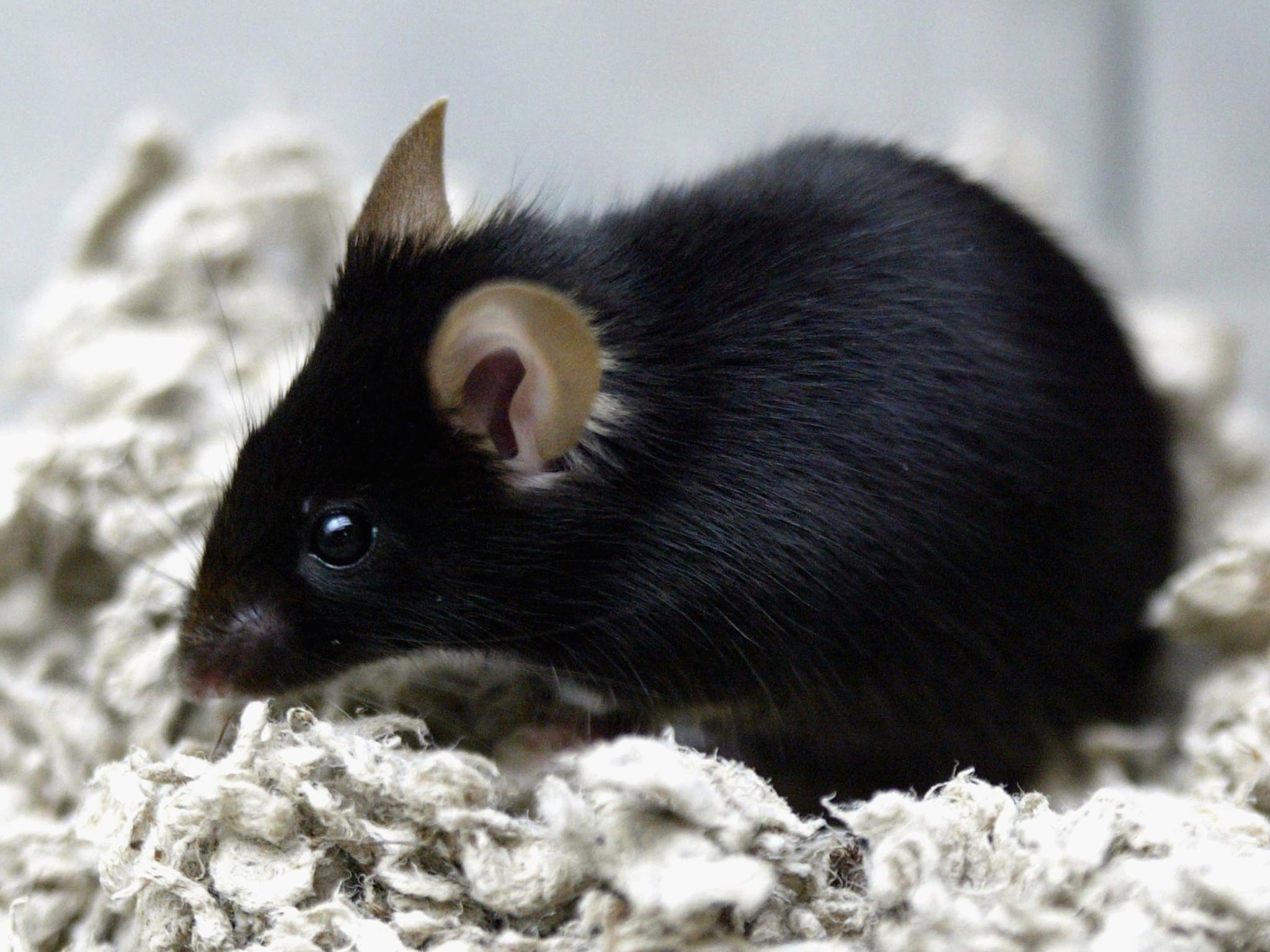Scientific discoveries in 2015 that will change how you see the world
From IVF puppies to cancer research

Your support helps us to tell the story
From reproductive rights to climate change to Big Tech, The Independent is on the ground when the story is developing. Whether it's investigating the financials of Elon Musk's pro-Trump PAC or producing our latest documentary, 'The A Word', which shines a light on the American women fighting for reproductive rights, we know how important it is to parse out the facts from the messaging.
At such a critical moment in US history, we need reporters on the ground. Your donation allows us to keep sending journalists to speak to both sides of the story.
The Independent is trusted by Americans across the entire political spectrum. And unlike many other quality news outlets, we choose not to lock Americans out of our reporting and analysis with paywalls. We believe quality journalism should be available to everyone, paid for by those who can afford it.
Your support makes all the difference.2015 was a fantastic year for science, with some important advances made in cancer research, the environment, engineering and biodiversity. Here are 15 discoveries that could change how you see the world.
1) Bowhead whale genome, linked to cancer resistance, DNA damage repair and increased longevity, mapped by scientists
In a UK-based study, scientists working together with scientists in Alaska, Denmark, Ireland, Spain and South Korea successfully mapped the genome of the bowhead whale - the longest-living mammal - identifying a number of genes that are linked to cancer resistance, DNA damage repair and increased longevity. The lead researcher, Joao Pedro de Magalhaes, said that this discovery could lead to those genes being used to help humans enjoy a longer life, and he is now seeking funding for a project that will insert the whales' genes into mice, so further tests can take place.
2) Researchers develop “imaginary meal” pill
An “imaginary meal” pill called fexaramine has been developed by researchers at the Salk's Gene Expression Laboratory. It has the ability to prevent weight gain, lower cholesterol, control blood sugar, and minimise inflammation in mice, with plans for human trials to begin shortly. The pill works by making the body believe it has consumed calories, causing it to respond by burning fat. Behaving in a different manner to other “diet pills”, it remains in the intestines and results in fewer side effects. Ronald Evans, director of Salk’s, suggested that the pill can also have important health benefits, tackling obesity and being potentially crucial in aiding the treatment of diabetes.
3) Scientists prolong lifespan of flies
Scientists at the Institute of Cell Biology, in Switzerland, have successfully managed to prolong the lifespan of flies, activating a gene that destroys unhealthy cells. While biological research has tried to prolong the lifespan of humans before, the researchers at the University of Bern have developed a new method of extending the life of flies through improved selection of the best cells within the body.
4) Green tea can help cure oral cancer

Green tea can help kill off cancerous cells, say researchers
Scientists at Pennsylvania State University discovered that a compound found in green tea that could trigger a cycle which kills off oral cancer cells, leaving healthy cells alone. While earlier studies had shown that the compound, epigallocatechin-3-gallatte (EGCG), behaved in this manner, it was not known why this was the case. However, the study at Pennsylvania State discovered that the compound can trigger a process in the mitochondria, causing cell death, furthering reducing the defensive capabilities of the cancer cell by lowering the expression of anti-oxidant genes. Furthermore, EGCG doesn’t simply leave healthy cells alone but was also found to increase their protective capabilities.
5) Mars once had a large ocean covering a large portion of its northern hemisphere
Almost half of the northern hemisphere of Mars was once covered by a large ocean that held 20 million cubic kilometres of water: more than the Artic Ocean. Nasa scientists highlighted how this discovery means that the surface of Mars may have been a more promising place for alien life than previously thought. Furthermore, these findings show that, unlike what was previously thought, the planet was once a warm and wet world.
6) Offices playing natural sounds can boost worker moods and improve cognitive abilities

A small stream leads to a lake near the Matterhorn mountain in Switzerland
Researchers at Rensselaer Polytechnic Institute learned that offices which play natural sounds such as ocean waves, trees and bird calls can boost the moods of workers and improve their cognitive abilities, as well as providing privacy (by masking speech).
This tactic is being employed by a number of modern open-plan offices, making discussions incomprehensible at a certain distance and reducing distractions.
7) Impact glass may exist on Mars
Brown University researchers found that spectral signals indicate the existence of “impact glass” on the surface of Mars, with specific deposits conserved in craters. Impact glass is created in the aftermath of a violent impact that forms a crater, due to its heat. This discovery, based on data from Nasa, could provide scientists with the ability to look for signs of life on Mars, as impact glass on Earth has previously been found to preserve ancient life.
8) Fathers experience weight gain
Fathers have been found to experience weight gain and a rise in their body mass index (BMI), according to a research conducted by Northwestern University’s Feinberg School of Medicine. The study, which followed over 10,000 men throughout a 20 year period, also revealed that the men who didn’t become fathers actually lost weight.
9) Scientists create “intelligent” mice that do not experience fear or anxiety
Scientists participating in a joint University of Leeds and Mount Sinai Hospital study managed to alter a gene within mice; improving their intelligence and reducing their ability to feel anxious or fear. The discovery could prove instrumental in research into age-related cognitive decline, such as Alzheimer’s or schizophrenia. The genetic modification involved preventing the activity of phosphodiesterase-4B, with mice that had this enzyme inhibited showing greater cognitive skills, being able to learn faster and remember longer.
10) Paralysed man walks again
The ‘brain-computer interface’ system will be improved by developing an implantable version, say experts
A 26-year-old male who had suffered a spinal cord injury which had paralysed him from the waist down was given the ability to walk again by scientists, who rerouted brain waves to electrodes on his knees.
The doctors responsible said that he was the first person with paraplegia caused by a spinal injury given the ability to walk without relying on manually controlled robotic limbs.
One of the lead doctors responsible said that this was possible because “even after years of paralysis, the brain can still generate robust brain waves that can be harnessed to enable basic walking”.
11) Fusion reactors could become economically viable
Researchers at Durham University and the Oxfordshire Culham Centre for Fusion Energy have found fusion reactors could become economically viable ways of generating electricity in just a few decades, telling politicians and policy makers to begin the process of planning for their introduction and the replacement of nuclear power stations. Analysis by these researchers has found that the costs associated with fusion power shows its feasibility, when compared with traditional fission reactors, generating electricity at a similar price.
12) Virtual reality can revolutionise healthcare
Cardiologists at the Institute of Cardiology in Poland have successfully used virtual reality to restore blood flow to a blocked artery, leading the way for it to revolutionise certain aspects of healthcare, in surgical procedures and during training. Using wearable virtual reality equipment, similar to that of Google Glass, developed specifically for the surgical procedure, doctor completed the difficult procedure.
13) Puppies born by IVF in the US

After years of failed attempts, scientists at Cornell University successfully bred the world's first puppies born through IVF, allowing for research into the conservation of endangered breeds and protection of those that are at risk of disease.
The puppies, all from the same litter, were the product of three sets of parents, born from frozen embryos implanted into the surrogate mother, in a similar manner to that used in human fertility clinics.
14) Cancer is caused by environmental factors
Research into the causes of cancer concluded that, on the whole, it is due to environmental factors, not, as was previously thought, “bad luck”.
Earlier this year, a study showed cancer was simply a result of “bad luck” but this has been the subject of significant debate and a new study, which experts have dubbed “pretty convincing”, argues only 10-30% of cancers occur because of natural functions within the body.
15) Researchers discover mind control for mice

Researchers at the University of North Caroline and National Institute of Health have discovered how to use chemicals to manipulate the behaviour of mice, turning on and off neurons, with the effects lasting up to an hour.
The tests carried out have focused on controlling the hunger and activity levels of mice, with it paving the way for research into how brain circuits can be more effectively targeted to treat human disease.
Join our commenting forum
Join thought-provoking conversations, follow other Independent readers and see their replies
Comments